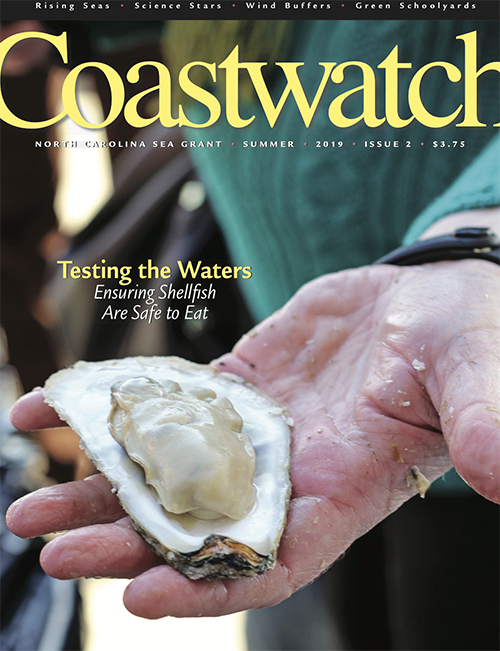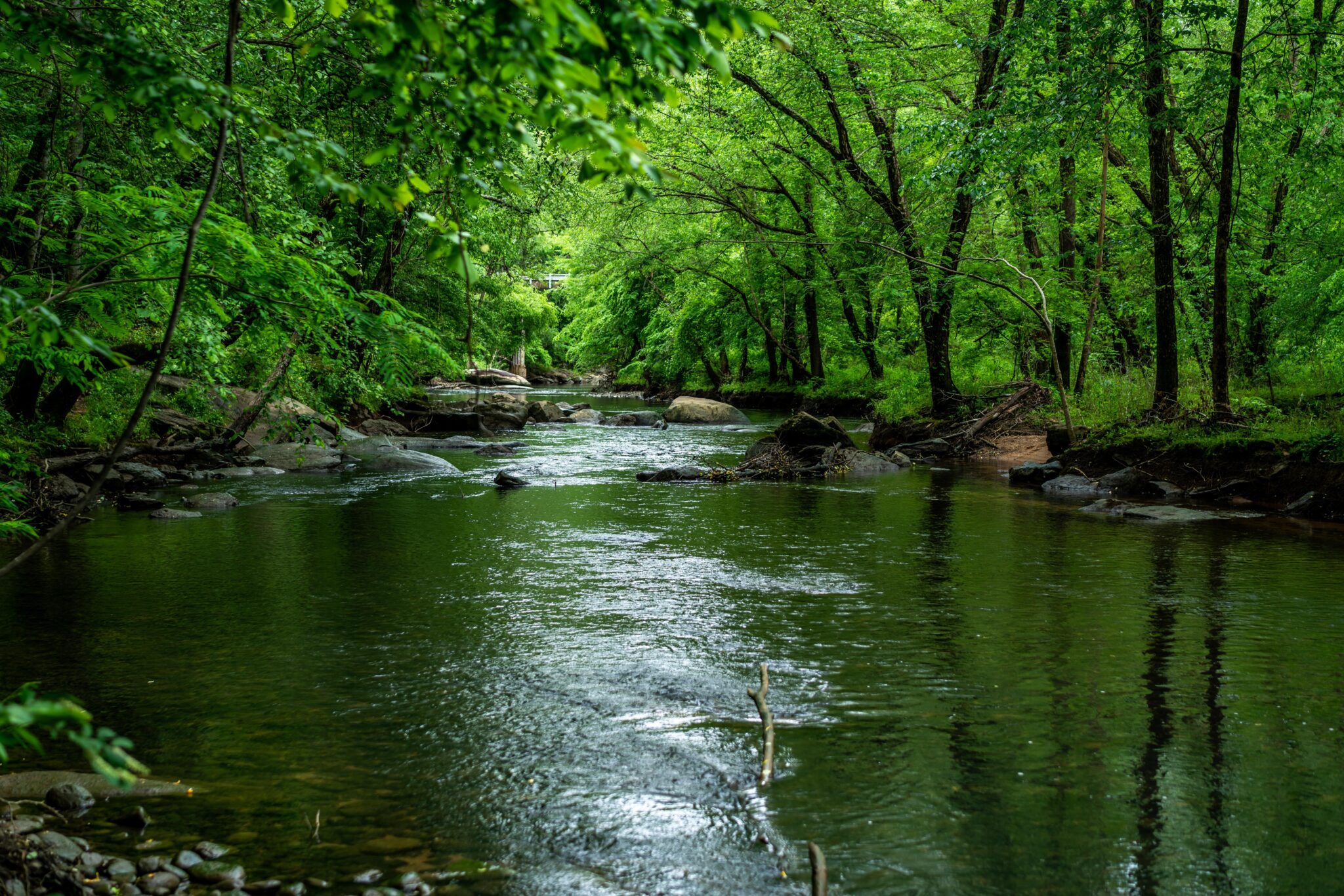Coastwatch Explains How the State Ensures NC Shellfish Are Safe to Eat
Contact:
Katie Mosher, kmosher@ncsu.edu, 919-515-9069
The Summer 2019 issue of Coastwatch magazine takes an in-depth look how state officials are keeping home-grown shellfish safe to eat. The latest edition of North Carolina Sea Grant’s flagship publication also explores much more, including new science and initiatives affecting coastal North Carolina.
Coastwatch opens with Julie Leibach’s cover story “Testing the Waters” on the state of North Carolina’s rigorous process to ensure shellfish are safe to eat.
In “Land Versus Sea,” an epic saga is taking shape at our coast, where incremental changes will have dramatic consequences, as scientists are measuring whether marshland can keep up with sea level rise.
“Don’t Cut Down that Tree!” reveals how some trees can provide homeowners with a protective buffer against hurricane-force winds that otherwise might tear apart their roofs — but which trees should property owners plant and maintain?
“Young Minds Enjoy New Green Infrastructure” tells how stewardship begins early and upstream. In this case, students at an inland elementary school are learning to limit runoff and thus preserve a small, urban creek.
For “Hook, Line & Science,” our fisheries specialists break down the latest research on topics from life jackets to noise-sensitive toadfish.
New research suggests all marshes have tipping points, and “Which Wetlands Will Survive?” offers the latest findings.
Recreational crabbers will find tips from our experts in “Gone Crabbin’” about how to manage gear and harvest crabs responsibly.
Plus: With the support of new fellowships from North Carolina Sea Grant and our partners, a fresh group of talented movers and shakers are poised to advance several fields for years to come. North Carolina Sea Grant also is preparing for the 2019 North Carolina Coastal Conference, and highlights several recent conferences in which Sea Grant and partners have played key roles.
And you can do your part to Break the Grip of the Rip! Share our free poster on rip currents — or print it out and put it up — and save a life.
The Summer 2019 issue of Coastwatch also provides news on the NC Local Food Council; PFAS pollution levels in fish and alligators; research on warming waters and male flounder; the science of mapping sites for oyster reefs; and beautiful artwork from King Nobuyoshi Godwin, a young artist with autism.
Visit nccoastwatch.org for stories and images.
###
To subscribe to Coastwatch, please visit our bookstore.
To request a sample copy: mail Coastwatch, NC Sea Grant, NC State University, Box 8605, Raleigh, NC 27695-8605; or email dmshaw@ncsu.edu. Many current and past Coastwatch stories are available online.
Permissions: The text of some content that appears in Coastwatch may be reprinted. To confirm availability, email dmshaw@ncsu.edu. For reprint requests regarding photos in Coastwatch, also contact dmshaw@ncsu.edu
North Carolina Sea Grant: Your link to research and resources for a healthier coast
- Categories:



